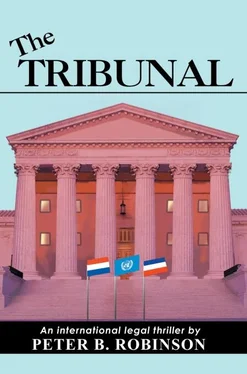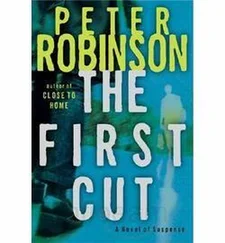Kevin immediately smelled the odor of marijuana. He looked around and saw a teenager smoking a joint at the bar. A few tables away, he saw a couple smoking hashish from a water pipe.
“I think that’s the smell of marijuana,” Diane said.
She showed Kevin the menu, which listed many varieties of cannabis for sale. “I don’t think this is the kind of coffee shop they have in America,” she said.
“Ugh, I hate drugs!” Ellen exclaimed. “Let’s get out of here.”
Kevin got up and headed for the door, followed closely by Ellen and Diane. He waved to the bartender, who smiled like this sort of thing happened all the time. When they were outside, Diane pointed out the marijuana leaf symbol on the front door.
“Oops,” Kevin said. “More culture shock. I’m glad you hate drugs, Ellen. So do I.” He was grateful for the anti-drug campaigns that had reached Ellen’s school.
“How did you know it was marijuana, Mommy?” Ellen asked.
Kevin chuckled to himself. Nothing slipped by this kid.
“Let’s see if we can find Anne’s house,” Diane said, deftly changing the subject.
They headed back toward the main street. Kevin tried looking at his map as they walked through the crowds, but as a city built on canals in the 16 thcentury, Amsterdam was hardly laid out in a grid pattern. He soon found himself hopelessly lost.
“I think it must be this way,” he said, relying on his sense of direction, which had never been good.
“Can’t we ask someone for directions?” Diane asked.
“I think we’re getting close,” Kevin said.
“What’s that girl doing?” Ellen asked as they turned a corner and walked down a street bordering a small canal. Ellen pointed to a window of the building on the corner.
Kevin saw a large-breasted woman standing in the window, wearing only a red lace bra, red panties, and black-netted stockings. She was smiling at the passers by and sucking her finger in her mouth.
“Look, there’s another one!” Ellen exclaimed.
A woman in black underwear stood coyly in the window of the next building.
“Wonderful,” Diane said. “You’ve taken us to the Red Light District.” She grabbed Ellen’s hand and turned back around the corner.
Before Kevin could say anything, Diane was asking a policeman for directions.
“What’s the Red Light District, Dad?” Ellen asked.
“I’ll explain it to you later, Ellen.”
They finally found Anne Frank’s house – in the opposite direction. The narrow five-story house facing a canal called the Prinsengracht, had been joined with the house next door and converted into a museum. They paid the entrance fee, and then walked from room to room, looking at photographs from the Holocaust and reading passages from young Anne’s diary that were displayed throughout the museum.
“Come over here, Daddy,” Ellen called when they had gone upstairs. “Look at this!”
It was the wooden bookcase that had been built to hide the entrance to the secret annex where Anne Frank and seven others had hid from the Nazis for more than two years. Ellen pulled open the bookcase like a door, and led the way up narrow stairs.
Anne’s bedroom was tiny and contained small pictures and postcards that she had used to liven up the bare walls. The museum placards told how Anne and her family had to be quiet as mice, lest the workers in the warehouse below hear their footsteps.
“I could never have done it,” Ellen declared, “unless I had my Game Boy and Harry Potter books.”
When he came to the end of the museum, Kevin watched a video interview of Anne’s father talking about how he had found out that his daughter had died in a Nazi concentration camp just one month before the camps were liberated. He later recovered her diaries and was finally able to get them published.’
Tears welled up in Kevin’s eyes as he thought of how much Ellen meant to him, and how horrible it must have been for Anne Frank’s father to have his daughter taken from him and imprisoned. And then to find out that she was dead! How did the poor man even want to go on living after that ? Kevin wondered. He doubted he would.
As they left the house, Kevin put his arms around Diane and Ellen and squeezed.
His hassles at the Tribunal seemed trivial. His family was everything.
That night, Kevin and Diane stayed up long after Ellen went to bed. They sat on pillows on the floor in front of a roaring fire in the old, stone fireplace.
“That night when the story was on CNN,” Diane said, tears welling in her eyes, “what I saw were concentration camps. So many people died. The Nazis killing millions, and then the Serbs wiping out villages in the name of ‘ethnic cleansing.’ I thought of my grandmother and grandfather being marched into the gas chambers…”
Kevin’s mother-in-law, Ruth, had learned only a few years earlier during a visit to Israel, when she located a distant cousin, the details of her missing parents’ fate. To hear of their murders from an eyewitness had proven too much to bear for Ruth. Although by then an old woman, she had relived the horrible pain as if she were a young girl finding out her beloved parents had just been taken from her. Ruth went to her grave not long after, and a day didn’t go by those last months of her life that she didn’t cry for her parents. The death certificate identified advanced arteriosclerosis as the primary cause of Ruth’s death, but everyone who knew her understood that she died of a broken heart.
As Diane opened up, Kevin listened and felt her pain.
He thought about Draga and the Bosnian Serbs. Diane was right – if the accusations against him were true, then what he and his men did to the Muslims was not much different than what the Nazis did to the Jews, and there were probably girls Ellen’s age, like Anne Frank, who had suffered and died. If Draga and the Black Dragons had done those things, Kevin knew he was on the wrong side of this one.
He held Diane in his arms, but made no promises to her.
After helping her to bed, Kevin threw another log on the fire, and sat and stared at the flames.
He had wanted so much to be a prosecutor at the Tribunal. Part of him knew that Diane would have been proud of him for playing that kind of role in what amounted to a present-day Nuremberg Trials – and he had known he needed that from her. But events had swept him in the other direction. He found himself in the new and uncomfortable position of defense counsel, and the main thing he was holding onto now was the first tenet of criminal law: the presumption of the accused’s innocence until proven guilty.
As he stared at the flames, he recognized there was something else working on him.
As a prosecutor, he knew how to put a case together. He knew how to play fair and achieve results. From what he’d seen in the Tribunal courtrooms, the prosecutors, led by that pompous ass, Bradford Stone, played by a different set of rules. They personified, in Kevin’s mind, the worst sort of abuse of government power. And he now wondered gravely – how many people had been railroaded by these same prosecutors ?
It was just as well that Draga wanted another lawyer; of that, Kevin was certain.
But until that time came, he would do his level best to keep the prosecution honest.
It was raining lightly on Monday morning, but Kevin decided to ride his bike to the prison anyway. The rain turned heavy and Kevin was soaked when he arrived. A sympathetic guard gave him a towel. Kevin dried himself off as best he could before entering the interview room for his second meeting with Draga.
The guard shut the door behind him. Draga was already standing in the room.
“Good afternoon,” Kevin said pleasantly. “How are you today?”
Читать дальше












